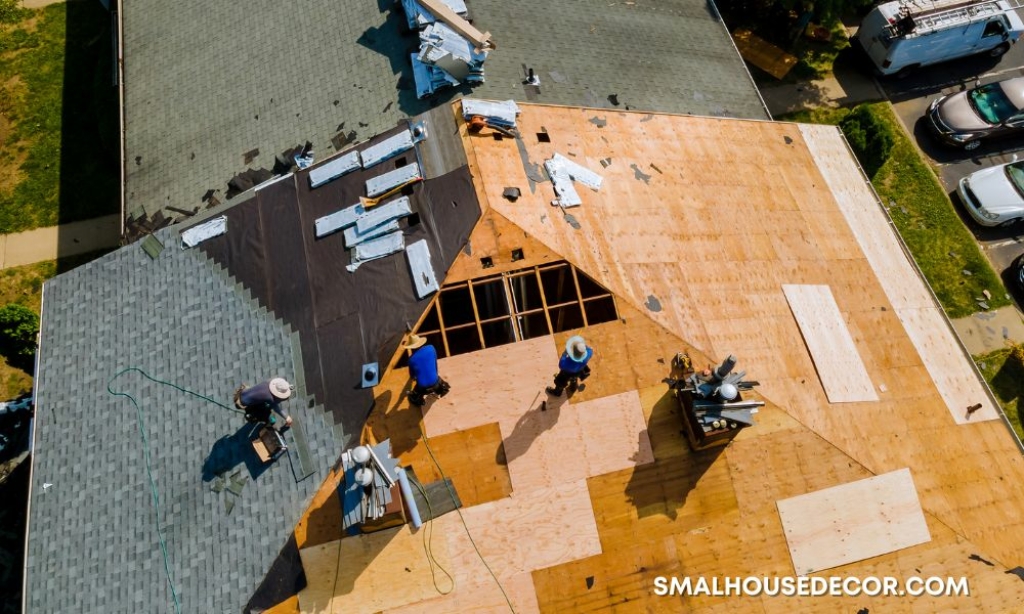A well-maintained roof is essential for protecting your home from the elements and ensuring its longevity. When it comes time for a roof replacement, homeowners face various costs, benefits, and choices. This article aims to provide a comprehensive understanding of these aspects, guiding homeowners in making informed decisions when considering roofing options for their homes or businesses.

Factors Affecting the Cost of Residential Roof Replacements
The cost of a roof replacement depends on several factors, including the choice of roofing material, labor expenses, and regional variations. Asphalt shingles are a popular, cost-effective option, while metal, wood, and clay or concrete tiles come at a higher price. Labor costs may vary depending on the complexity of the project and the region where you live. Additional expenses, such as permits and disposal fees, should also be factored into the overall cost.
Benefits of Residential Roof Replacements
Investing in a new roof offers numerous benefits, such as increased property value, enhanced curb appeal, and improved energy efficiency. A new roof not only looks great but also provides better insulation, helping reduce energy consumption and lower utility bills. Replacing your roof also extends its lifespan, ensuring your home remains protected from harsh weather conditions and potential damage.
Comparing Popular Roofing Materials
There are various roofing materials available, each with its pros and cons. Asphalt shingles are affordable, easy to install, and come in a variety of colors and styles. Metal roofing is durable, lightweight, and fire-resistant but can be more expensive. Wood shingles offer a natural, rustic appearance, while clay and concrete tiles provide excellent durability and longevity. Consider factors such as climate, budget, and aesthetic preferences when selecting the ideal roofing material for your home.
Selecting the Right Roofing Contractor
Finding the right roofing contractor is crucial for a successful roof replacement. Look for professionals with relevant experience, proper licensing, and insurance. Check customer reviews, ask for recommendations, and compare quotes from multiple contractors to find the right fit. Inquire about warranties offered, as they provide assurance of the quality of workmanship and materials.
Understanding Warranties
Warranties are an essential aspect of the roof replacement process, covering potential defects in materials or workmanship. There are two primary types of warranties: manufacturer warranties, which cover the roofing materials, and contractor warranties, which address workmanship issues. Ensure you understand the coverage, limitations, and duration of the warranty before committing to a contractor or material.
Roof Replacement Process
The roof replacement process begins with an initial inspection and assessment, during which a professional evaluates your roof’s condition and provides recommendations. Once you have chosen the right materials and contractor, prepare your home for the project by clearing the surrounding area and discussing any specific requirements with the contractor. The contractor will then remove the old roof, install the new one, and clean up any debris. Finally, a post-installation inspection ensures the project is complete, and the warranty can be activated.
Maintenance Tips for Extending Roof Lifespan
Regular maintenance is vital for prolonging the life of your roof. Schedule inspections to identify and address any issues, clean your gutters and roof surface to prevent debris buildup, and promptly repair minor damages. Taking these preventive measures can help extend your roof’s lifespan and protect your investment.
Also Read: 10 Things You Should Ask Chester County PA Roofing
Environmental Considerations in Roof Replacements
Environmentally friendly options are increasingly popular in the roofing industry. Some materials, such as metal or recycled shingles, have a lower impact on the environment. Consider the recyclability of old roofing materials and the energy efficiency of the new materials when planning your roof replacement.
Bringing it all together
Understanding the costs, benefits, and choices involved in residential roof replacements empowers homeowners to make well-informed decisions about their roofing projects. By carefully considering the variety of materials, selecting a reputable contractor, and staying informed about warranties, you can ensure a successful roof replacement that enhances your home’s value, energy efficiency, and curb appeal.
Don’t forget to prioritize regular maintenance and consider environmentally friendly options to maximize the longevity and overall impact of your investment. By taking these factors into account, you can confidently navigate the roof replacement process and secure the best outcome for your home, whether you are considering roofing in Springfield or any other location.